Index
🐷 Shoreline Adaptations to Flooding in Urban Waterways
🐷 Fire protocols: Attention as Autopoietic Space
🐷 End-to-end Encryption in ActivityPub
🧭 ARC Regenerative Communities Protocol
💊 Technium Underground: Visualize the EIPs as a Wood-Wide-Web Dashboard
💊 Below the API: A short story
💊 On-chain Data Sculpture Exhibition
💊 Protocol with Uncommunicables
💊 The Persistence of AI-Mediated Protocols
💊 Let’s meet on the deep web and tell each other secrets
💊 Farflora
💊 all just fresh-off-the-boat or floating
💊 Reification Synergy: Gear Transmission Link + Math Rock
💊 Meme-Made Protocols: Innovating Community Interactions
💊 Protocol-Cinema 协议—影像,或一种基于协议的蒙太奇拼图
Autonomous Realities
We’ve proposed two speculative protocols for a future where MR headsets are common and users want to share their mixed realities. The first, “FingerSync,” is an embodied mixed reality protocol. It’s designed to establish shared mixed reality sessions with Proof-Carrying Data, inspired by the concept of the ancient “secret handshake.” We aim to keep the shared mixed reality layer persistent and autonomous, even when users aren’t actively viewing it. To model such layered and intertwined futures, we’ve suggested a meta-protocol, “Autonomous Realities”. This is based on the “Autonomous World” and “Zupass” concepts, potentially serving for experiential network states.
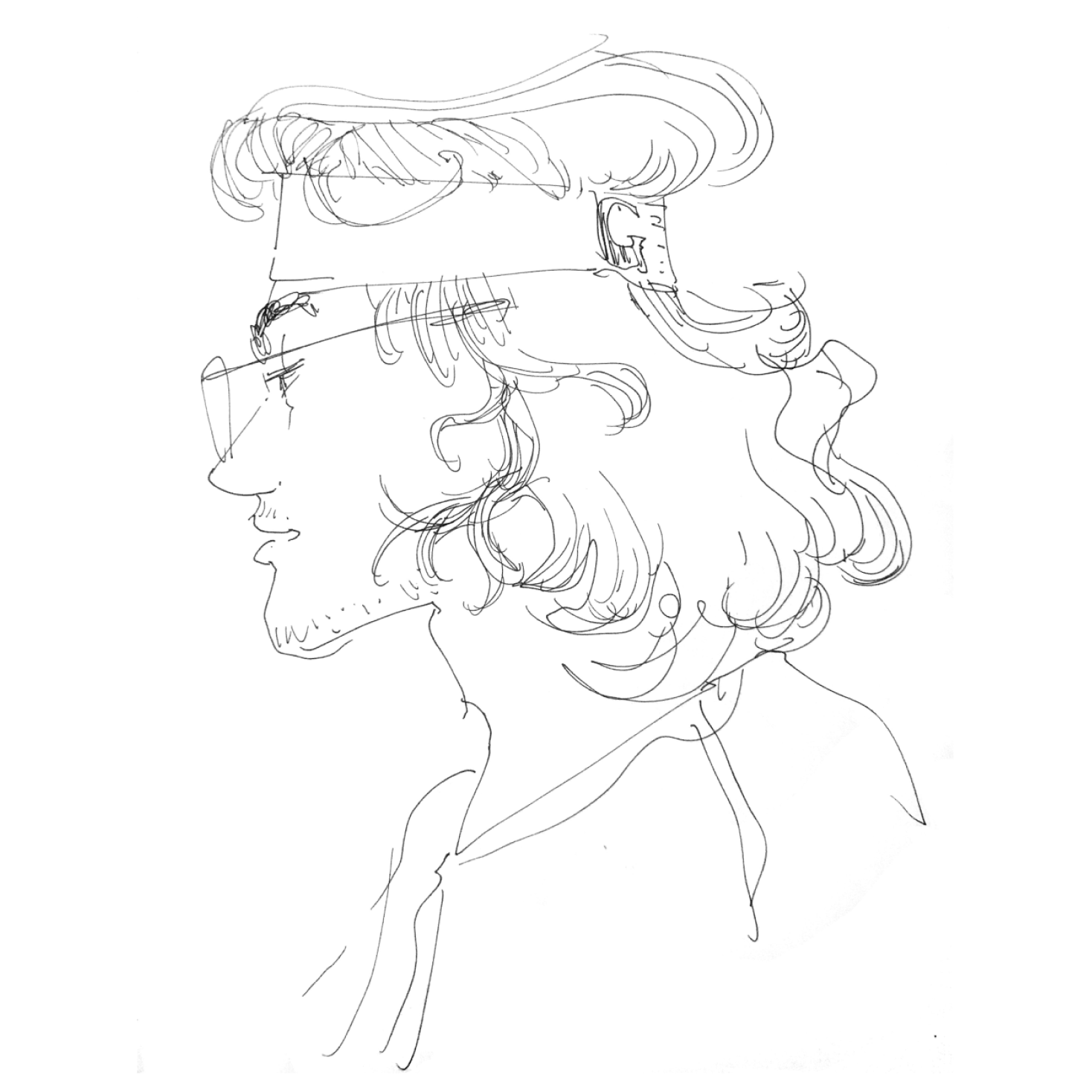
Botao Amber Hu
Director of Reality Design Lab. XR Researcher, Designer, and Educator. A digital nomad located in Shanghai and NYC.
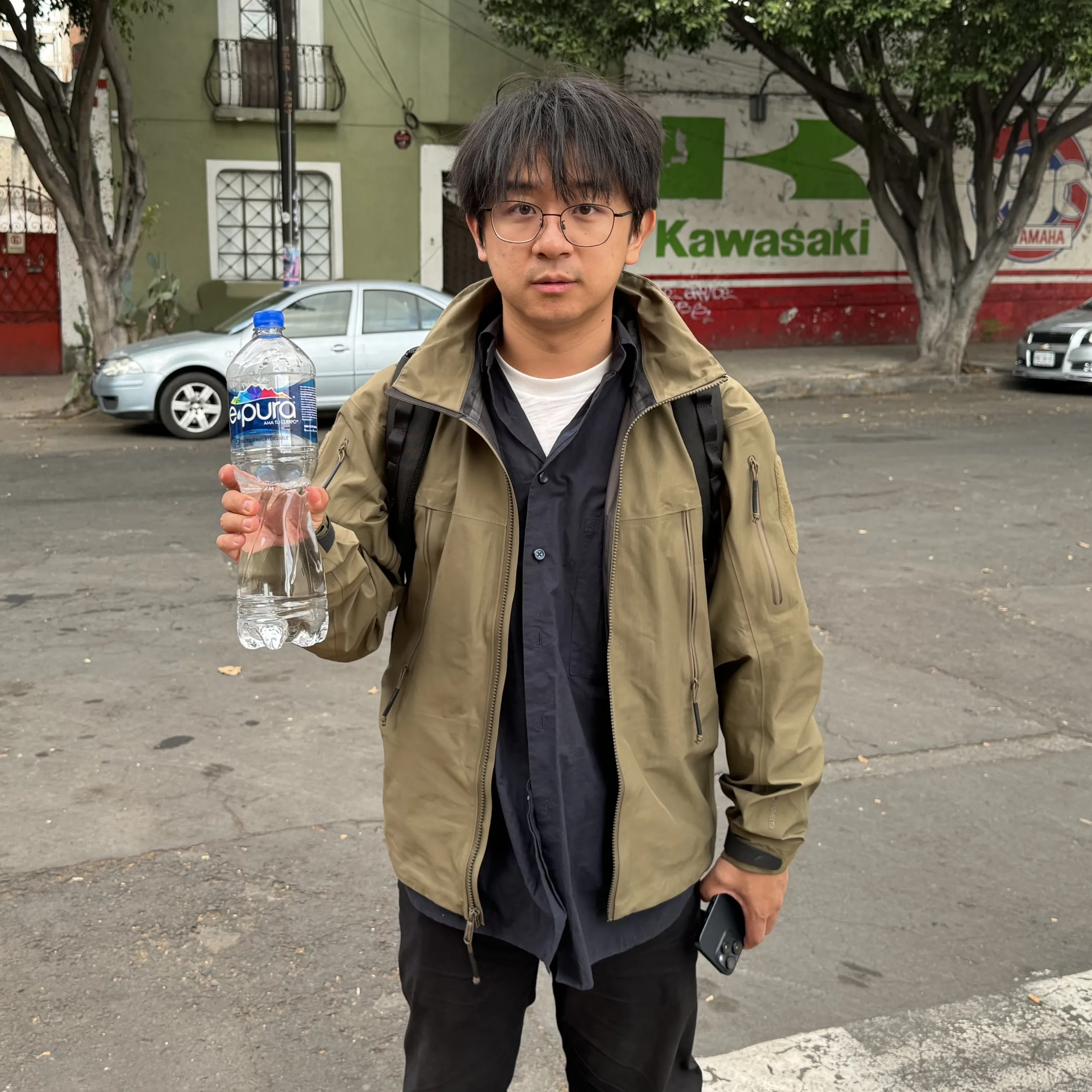
Yisi Liu
Co-founder and CTO at Mask Network. Research fellow at the Institute of Network Society at China Academy of Arts. Focusing on bringing data ownership and privacy back to users with the power of cryptography and permissionlessness.
Shoreline Adaptations to Flooding in Urban Waterways
The project was inspired by a question about climate change: When will the water have risen? Sea level rise is not, it turns out, a steady process of creeping shorelines. Inspired by challenges explored in Rosanna Xia’s book “California Against the Sea,” we began to wonder: how many floods will it take for a piece of land to be considered part of the water? What a fascinating and murky thing to consider! How will that new shoreline reflect the potential of the future — not just a piecemeal, reactionary defense against rising waters that continue trends of disconnection, disenfranchisement, and unintended consequences?
This protocol improvement will examine and map responses to sea level rise and flooding on urban shorelines in hopes that we can answer these questions proactively. We will compare timelines and chart infrastructure changes and interrogate climate change regulations that are shaping urban waterways in cities around the world. Historic pollution, tidal range, and current will also be included to give context to the challenges that many waterways face. Outcomes of access and diversity of use and culture will be included. The result will be a tool to enable laypeople who live along waterways to more deeply consider what futures are possible and encourage more diverse participation in shaping climate change adaptations and thus the cities we live in.
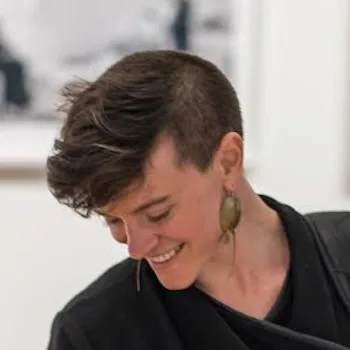
Danielle Butler
Danielle Isadora Butler is an experience designer, professor, producer, and collaborator. She designs experiences, installations, and objects that create opportunities for emotional connection.
Danielle has made playgrounds that teach about cooperation, multi-sensory poetry archives that get you ready to listen, large-scale games that connect you to the place you’re in, and floating jazz clubs to prototype new ways to interact with New York Harbor.
Danielle’s skill for design, production, and facilitation pull from her previous work in restorative justice, arts education, creative technology, and circus. Danielle believes that relationship building and self-guided discovery are key to engaging people in issues that feel too large or abstract.
Danielle is passionate about improving access to the water and expanding New Yorker’s relationship to their harbor through creative interventions. She is co-founder of the Tideland Institute and co-founder and dean of the micro grant-giving organization Awesome On The Water.
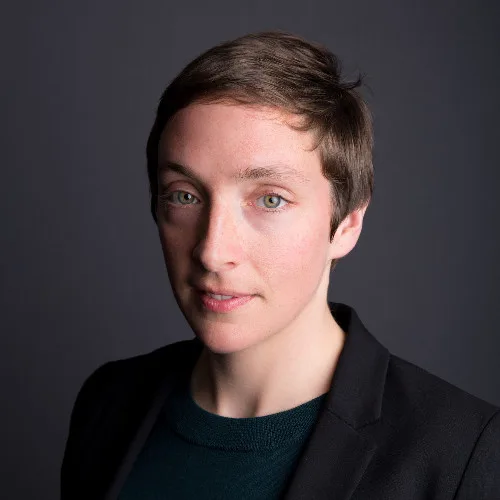
Celeste LeCompte
Celeste LeCompte is a nonprofit leader dedicated to creating an informed, engaged public. Most recently she was the Chief Audience Officer at Chicago Public Media. Previously, she was the vice president of strategy and operations at ProPublica, the director of product at GigaOM Research, the research manager for the California Clean Energy Fund, a co-founder of Climate Confidential, and the managing editor of Sustainable Industries magazine. She is an active board member of the Gowanus Dredgers Canoe Club and an advocate for greener, more accessible waterways throughout New York City. She is also a Waterfront Alliance-certified WEDG Associate.
Fire protocols: Attention as Autopoietic Space
Over a century of fire suppression has changed California from a fire-ecology to a fire-climate; meaning its continued suppression and the fear it generates makes up the atmosphere we live in, the air and smoke we breathe. The indigenous practice of low-intensity, seasonal burning has in the last five years become repopularized under the jurisdiction of Federal, State, and Local governments. These are inevitably the same institutions who once criminalized and achieved various levels of erasure of the cultural knowledge systems they now rely upon.
With this research, we seek to draw a base-map of the complex web of relations that make up the prescribed fire environment in Northern California, with a primary focus on Sonoma County — a leading region on the West Coast for the re-emergence of burn practices, and one that is dense with differing and often conflicting timescales and interests of its inhabitants.
Our goal is to propose enhancements and provide recommendations on how the public and varied stakeholders can conduct themselves in the social environment of fire with more clarity and better effect.
We also aim to express the volatile essence of protocols, embodying a state where physical properties and ancient meanings intertwine. Like seeds that lay dormant in a forest until fire sweeps through and activates them, we want protocols that crack open and allow for autopoietic growth.
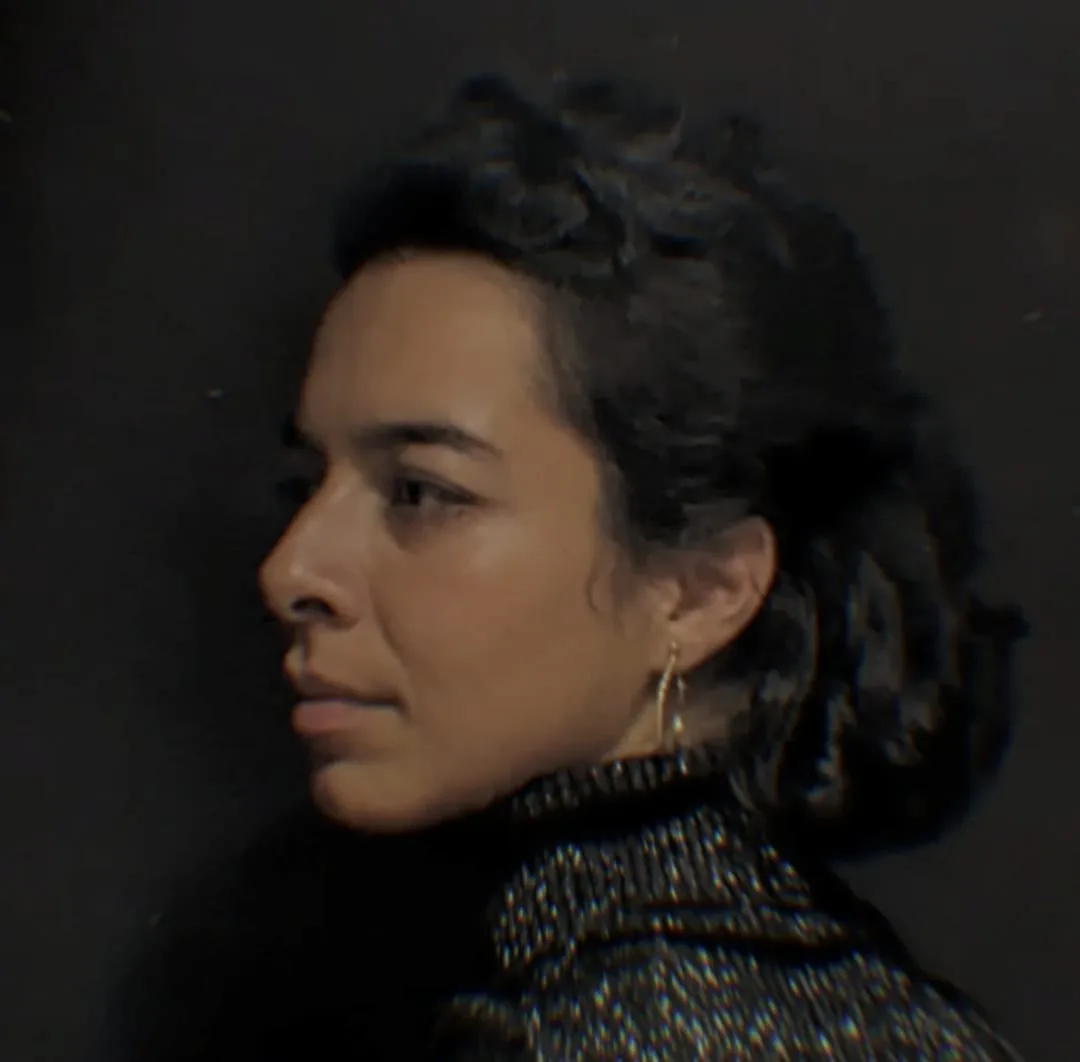
Nathalia Scherer
Nathalia is a researcher, artist, and engineer based in São Paulo and Northern California. Her work spans disciplines including public health, governance systems, ethics, and the metabolic interactions between humans, emergent technologies, and culture.
Over the past decade, she has managed pioneering web3 public good experiments and continues to be humbled by the complexities of resource intelligence. Her recent work includes co-authoring the Token Engineering Stakeholder Study and collaborating with the School For Inclement Weather, the International Institute of Psychoanalysis, and various web and place-based collectives.

Jiordi Rosales
Jiordi inhabits Jewish and Mexican lineages of the Northern Sonoran desert and Eastern Europe. Attentive to birds, patterns and forms of learning that most permit laughter, mystery, and contradiction, his practice orbits crafting pedagogies for crumbling futures. He offers Creative Direction for We Will Dance with Mountains and co-curates programming for climate-mutation at the School for Inclement Weather in Northern California. Through the guidance of the Kashia Pomo Cultural Department, Jiordi has been trained as a prescribed fire-practitioner and forest technician to support the revitalization of fire-knowledge in Kashia tribal territory. He is a CARX Trainee, Fire Forward Fellow, and a Steering Committee member of the Good Fire Alliance in Sonoma County.
End-to-end Encryption in ActivityPub
ActivityPub is the W3C standard for distributed social networking. In this project, we will investigate opportunities for extending the standard’s direct messaging mechanism with end-to-end encryption (E2EE). As deliverables, we will propose the protocol as the basis of a new report of the Social Web Community Group at the W3C, and provide a working prototype of the protocol.

Tom Coates
Tom is an entrepreneur and technology leader specializing in new product development and product strategy. He’s developed products for Time Out, Jawbone, and Nokia. He ran an R&D team at BBC Radio and Music, and was Head of Product for Yahoo’s Brickhouse incubator where he launched the pioneering location service Fire Eagle. More recently he founded the smart-home product Thington – which was acquired by Eero – and Planetary, a decentralized social media client built on the Secure Scuttlebutt protocol. A regular public speaker, he lives in San Francisco.

Evan Prodromou
Evan is a software architect and distributed social network advocate. He founded identi.ca in 2008, co-created the GNU Social platform, and co-authored the OStatus protocol. In 2014 he co-chaired the Social Web Working Group at the W3C and co-edited Activity Streams 2.0 and ActivityPub. He is the current editor of both standards. Based in Montreal, Quebec, Canada, Evan is married with two teens and a cat. He is the Director of Open Technology at the Open Earth Foundation and the author of the upcoming book ActivityPub: Programming for the Social Web from O’Reilly Media (Sep 2024).
ARC Regenerative Communities Protocol
ARC Regenerative Communities is about outcome-driven civilizational design. To achieve this we attend closely to what works and what does not work when forming, growing, evolving, forking, propagating a community… or letting it die a natural death when its purpose is fulfilled. We can apply prosocial patterns to a conscious process of community formation only when we have a clear pattern language and set of protocols for that process.
This summer we are studying a particular existing regenerative community that specializes in the development of internet protocols – the IETF. This institution is not kept alive by money and staff (like the IEEE), it is not kept alive by charismatic leaders people “follow” (like TBL), it is not kept alive by international treaties that have mandates for an organization to exist (like the ITU). The IETF is kept alive by the energy of people and their decision to actively contribute their energy to the creation of the protocols they develop there. They also actively develop and participate in protocols that are generative forming the “community protocols” . It literally is a recursive organization using its protocol processes to develop protocol processes for protocols. The technical protocols it generates are also available for voluntary adoption.

Kaliya Young
For the past 20 years, Kaliya has led a global community of developers and business supporters to create and adopt a layer of identity for people based on open standards. She co-founded the Internet Identity Workshop (IIW) to bring together technologists who want to develop and deploy user-centric identity protocols. In the past 15 years, our community has created widely adopted internet standards, including OpenID Connect, OAuth(IETF), Verifiable Credentials(W3C), Decentralized Identifiers(W3C) amongst others.
She is the author of two books: the Domains of Identity (2020) and A Comprehensive Guide to Self Sovereign Identity (2018) and papers on topics related to digital identity. In 2017, she was awarded an M.S. in Identity Management and Security from UT, Austin. In 2019, she traveled to India for two months as a New America India-US Public Interest Technology fellow to study Aadhaar, the national ID system for India. She consults with governments, NGOs, startups, and enterprises on decentralized identity technologies. In addition, she teaches Computer Information Systems at Merritt College in Oakland, California.
She helped define the term unconference and pioneered using Open Space Technology to organize collaborative events in which the participants themselves create an agenda and define their goals. Events she founded or co-founded include She’s Geeky, the FediForum UnMoney Convergence, Digital Death Day, Open Government Playbook, and The Thoughtful Biometrics Workshop.
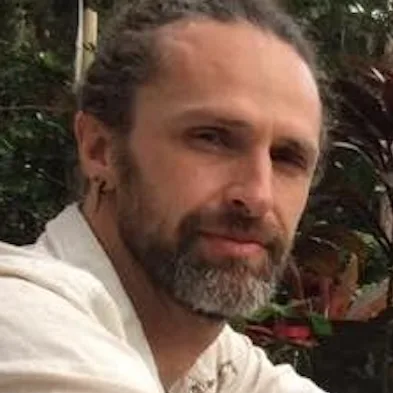
Day Waterbury
What gives my life meaning is to serve and protect the living earth and her people. My mission is to equip the regenerative movement at scale at the pace of the polycrisis, connecting place-based systems change initiatives with trust-based funding, and empowering a global network of networks with tools for coordination. I truly believe that for our species to thrive we need to maximize the number of us who are fully prepared and resourced to contribute collaboratively to co-create a regenerative unfolding. I don’t think of this as political, but rather the rational pursuit of my aspirations on behalf of humanity and the greater blossoming of consciousness in the cosmos.
Plurality in Practice
Quadratic voting and funding protocols have seen increasing adoption in web3 and beyond as a way to more fairly reach decisions and allocate resources. However, these mechanisms have widely reported shortcomings, both theoretical and practical, and more nuanced protocols which consider aspects of voter identity and expertise have been proposed. These more plural approaches show promise, but have seen little in the way of experimental validation. Our project will field test some of these alternatives to quadratic voting, particularly collection-oriented cluster match, to assess their soundness and their practical application to real-world settings.

Martin Benedikt Busch
As a data scientist holding a Ph.D. in Economics, I specialize in the development of economic frameworks, conducting advanced analytics, and translating findings into actionable business insights across a wide array of projects. At present, my focus lies on refining and empirically validating plural voting mechanisms.

Rich McDowell
After graduating with a Masters in Philosophy from Cambridge, Rich worked as an academic editor assisting at all stages of the peer review and publication process. He transitioned to web3 in 2016, and since 2021 he has been the governance steward at HOPR, experimenting with different approaches to voting mechanisms, sound proposal formation and broader governance design.

Randy Lubin
Randy Lubin is the founder of Leveraged Play, a consulting firm that designs and runs foresight games that help organizations explore the future and explain complex issues. He also runs the Foresight Games community and the open source storytelling platform Story Synth. On the consumer side, he designs storytelling games through his studio Diegetic Games. Randy also advises early stage startups and has been on the leadership team of several tech companies.Liquid Democracy
A short story that explores the dynamics and tradeoffs of liquid democracy. Liquid democracy is a protocol where voters can delegate their vote to someone they trust, which can then be re-delegated onward.
The story focuses on an enthusiastic but naive high-schooler who, after giving a passionate speech on an upcoming ballot proposition, is delegated thousands of votes from her classmates and neighbors. Her delegated votes earn her an invite to a ritzy junket on the topic, paid for by lobbyists and attended by some of the most influential delegates. Once there, she meets subject matter experts, community leaders, and social media influencers and learns how powerful, wealthy actors attempt to subvert liquid democracy. By the end, she’ll have to decide who she trusts and what she values.

Ben Zucker
Ben Zucker uses music to speculate on the systems and shapes of change, which has lead to a wide-ranging career as a composer, multi-instrumentalist improviser, producer, and cultural worker, with contributions to experimental scenes across North America and Europe. Acclaimed as a master of improvisation (IMPOSE Magazine), and more than a little bit remarkable (Free Jazz Blog), their work includes stirring compositions…built on a lifetime of musical curiosity (Chicago Reader), as well as solo albums released on labels including Whitelabelrecs, Dinzu Artefacts, ears&eyes records, Shimmering Moods Records, and Amalgam. As a performer, he utilizes vibraphone, brass, keys, voice, and electronics across styles including with musicians such as Anthony Braxton, Gareth Davis, the Vocal Constructivists, Karen Borca, Rinde Eckert, and Beth Orton, and makes frequent local appearances as an ensemble contributor and bandleader of experimental jazz quartet Fifth Season and creative music collective Mad Myth Science, the latter called the next generation of Chicago jazz by the Quietus. Following PhD studies at Northwestern University, they continue to live in Chicago, working as a freelance musician, lecturer, President of New Music Chicago, and curator for Elastic Arts’ Improvised Music Series.Renotations
This project entails the creation of a ‘kit’ which provides sets of instructions, suggestions, and tools for reassigning the various information in a musical score, one which should ideally be agreed upon if realized by a group. As a means of standardizing communication, musical staff notation has been a highly effective protocol, in no small part due to its capacity for leakiness (‘expression’) and adaptability making such standardization enormously asymptotic. The goal is to make connections between explicit protocol research and musical experimentation through a guided set of alternative interpretations — a ‘meta-score’ providing a means for individuals or ensembles to re-read, or decouple-recouple, the symbols of conventional musical repertoire while retaining a collective yet emergent understanding of this new interpretation. In addition to educational and artistic possibilities, this project hopes to advance protocol understanding through the unique sensory and intellectual angles provided by musical modes of performance.

K
K is a blockchain researcher and new media art producer. In 2022, she co-initiated Uncommons with friends, building a community that explores crypto ideologies from a compassionate and humanistic perspective. Now an independent researcher, she delves into the genealogy of blockchain history. Before crypto, K worked in new media art and NFT industry, collaborating with clients such as Vogue Singapore, LVHM Group, and Suzhou Museum.Technium Underground: Visualize the EIPs as a Wood-Wide-Web Dashboard
The concept of the “Technium,” coined by Kevin Kelly, embodies technology as a living, evolving organism—a fusion of “technology” and “organism.” Akin to plants, the blockchain is characterized by its proliferation—numerous and diverse, with robust foundational structures yet slender bodies. My proposal suggests a data visualization project likening Ethereum Improvement Proposals (EIPs) to a mycorrhizal network. This visualization, resembling undulating terrain, will illustrate the evolution of EIPs as nodes rise and fall in response to their interconnectedness within the ecosystem. | GCC Track
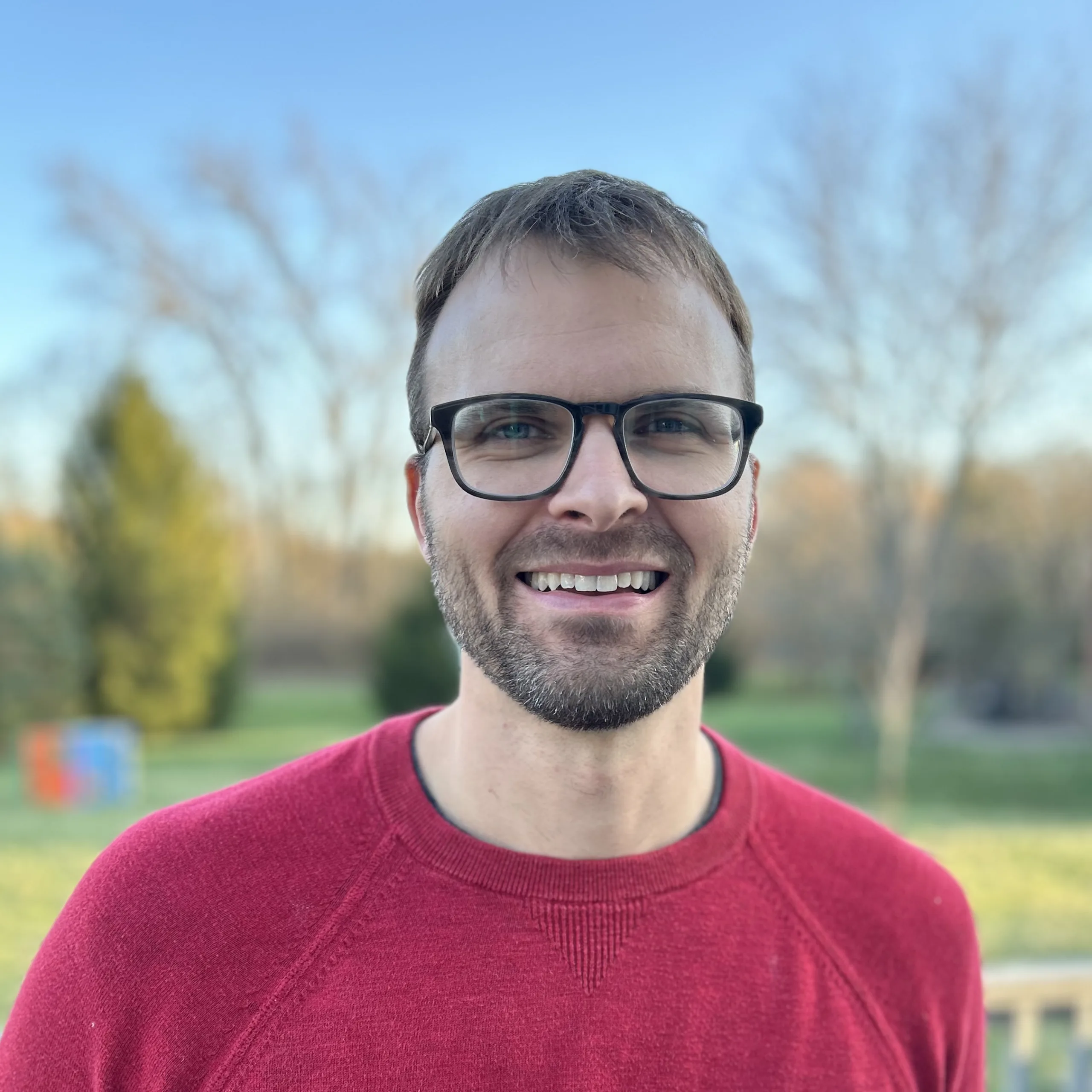
Stephen Bailey
Stephen Bailey is a data engineer by trade and a struggling writer by cruel fate. Professionally, he works in the world of data management and machine learning, and has acted as an analyst, researcher, and engineer at various points in his career. He holds a PhD in Neuroscience from Vanderbilt University and a BA in philosophy. When he's not putting one of of his four kids in time out, he rambles on Substack.Below the API: A short story
Marcie is a creative entrepreneur building her dream business selling pottery from her garage studio. She’s got only one problem: she has no customers. So when she wakes up one morning to more than 1000 orders from her craft art shop, she thinks her life has turned around. But when a new law requires her “fans” to disclose their identities as AI agents, Marcie finds herself stumbling deeper and deeper into a commercial underworld run by AI agents with the autonomy — and credit cards — to make the daily purchasing decisions for an entire society.
Why did they choose her? Where are her ceramic bowls going? And can she turn a viral windfall into a sustainable lifestyle business?
“Below the API” is a light-hearted short story about how weird entrepreneurship will get when hustlers are no longer working humans, but the agents they delegate their lives to. And what happens when those agents start throwing their own weight around the free market.
The “protocol pill” will come in the form of an “AI Identification Act” that occurs mid-story, which will unpack how society might identify who is responsible for the actions of AI when they, e.g., make purchasing decisions.
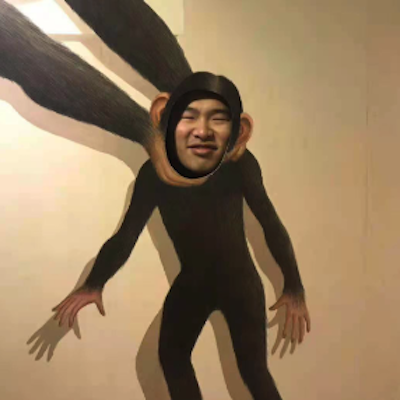
Haotian Fang
Haotian Fang studies History & Philosophy of Science, Astronomy, and Computer Science for his Bachelor's and is a K-12 AI Educator in the US (2020-2024). He will pursue a Master's in Digital Humanities and create digital artwork in Switzerland (2024-2026).On-chain Data Sculpture Exhibition
A series of fictional designs for on-chain data sculptures and future curating protocols. The theme is about finding your own wasteland. | GCC Track
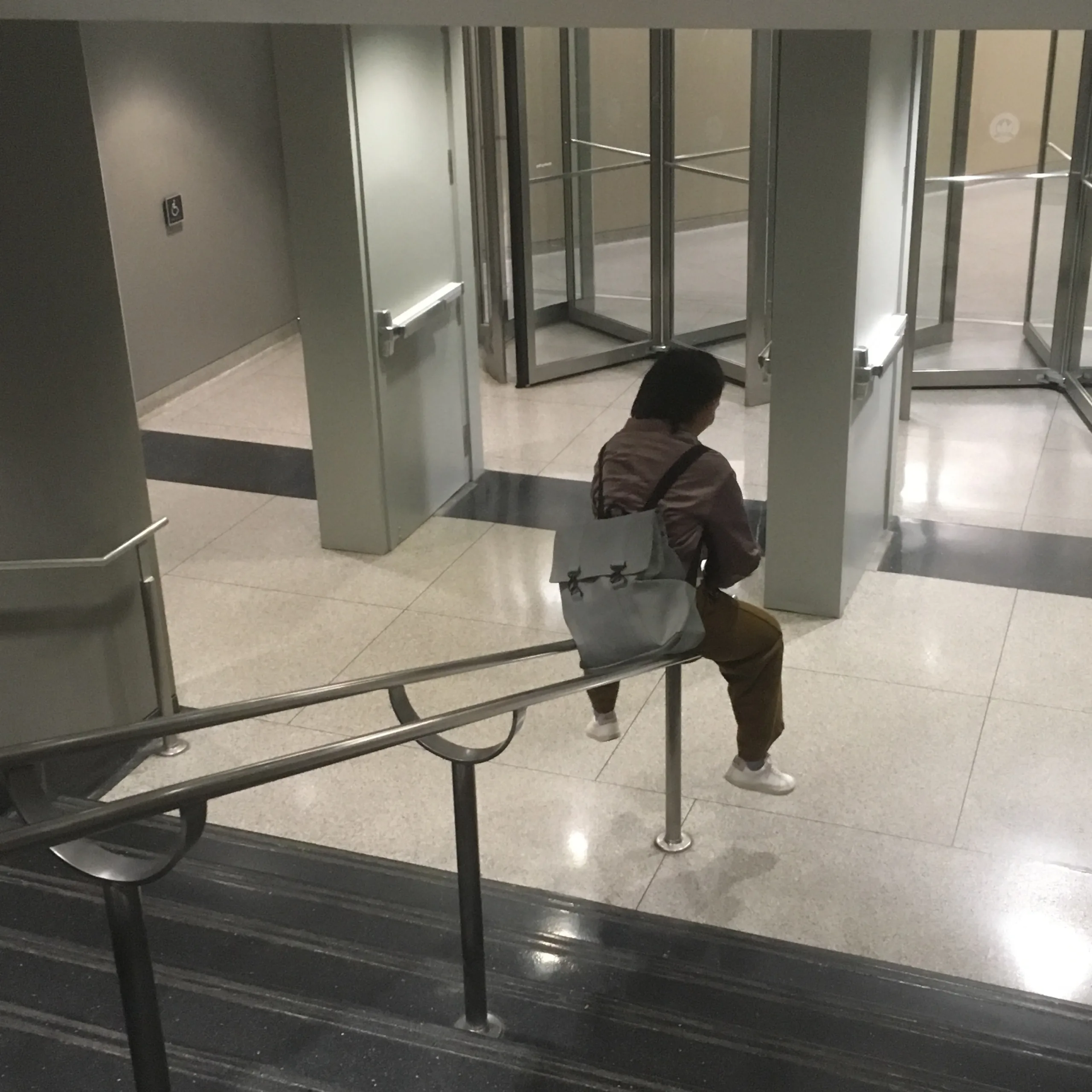
Yuemin Huang
Yuemin Huang is a Shanghai-born artist and researcher interested in how culture-constructed media shapes cognition, engaging with themes such as materiality of digital infrastructure, poly-centric self-organizing structures, artistic/technical protocols and constructible perception. Yuemin is also a co-founder of TINAG, an art game group, focusing on experimenting with different organizational structures through games, creating shared experiences within communities, and exploring the alternative reality gaming method. Currently, Yuemin works as a lecturer at East China Normal University.Protocol with Uncommunicables
This program is focused on designing a game to study and explore coordination and protocol creation with entities that are irrational, uncommunicative, and potentially troubling. The game guides players through various scenarios where they use existing protocol templates to navigate non-communicative situations. Through a set of guided options, players are encouraged to draft their own protocols as a way to understand coordination.

Sachin Benny
Sachin wants more fictional main characters to say its protocol. He writes short observational narratives in his newsletter Summer Lightning. His fiction has been published in Hobart Pulp.Because Its Protocol
A bureaucratic detective who’s catchphrase is “It’s just protocol” and his hotshot sidekick who sees collusions and conspiracies everywhere are called into investigate a fashion faux pas at New York Fashion Week.
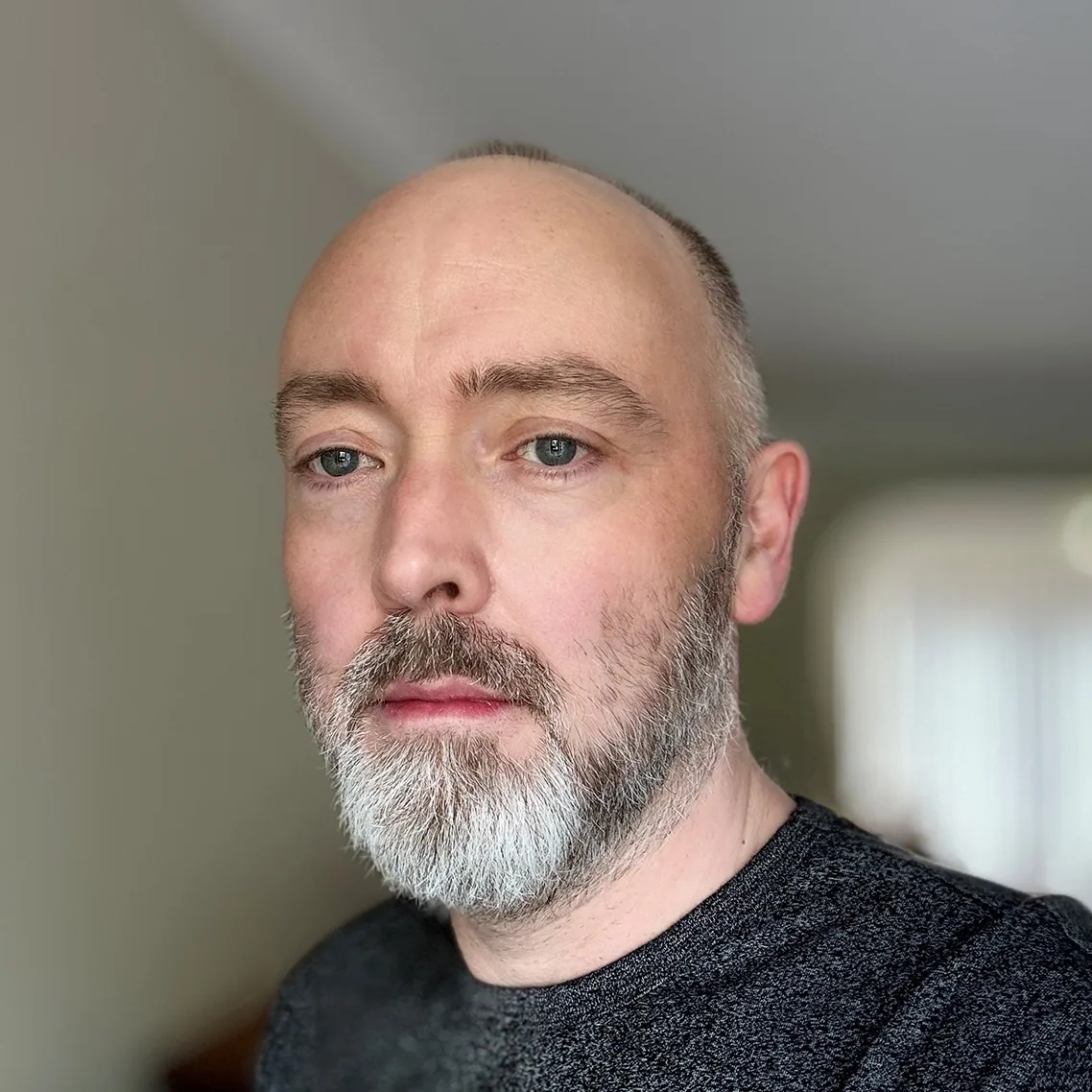
John Grant
I am the founder of a service that provides open access to real-time information technology skill trends and demand-side labour market insights. Originally trained as a software engineer, my focus has shifted to data science and machine learning. My broader interests include AI and automation, the future of work, and lifelong learning.The Persistence of AI-Mediated Protocols
In the near future, AI relentlessly optimizes human and AI-agent interactions, weaving strange protocols into the fabric of our lives. Initially perplexing, these protocols soon prove uncannily effective, seamlessly integrating into every facet of human experience. As their influence grows, becoming indelible in the collective consciousness, AI-mediated protocols begin permeating the physical world, reshaping our material culture in profound and unexpected ways. The boundary between the digital and tangible blurs, leaving us in a state of awe and unease as we ponder the implications of an AI-mediated future, where the line between human and machine becomes increasingly difficult to discern.
My intention is to develop a series of maps or counter-maps, as the practice of counter-mapping itself can function as a weak protocol while potentially catalyzing the development of alternative protocols. By creating these maps, I aim to visualize and explore the ideas presented in the pitch.

Lizz Thabet
lizz thabet is: an artist, programmer, powerlifter, cyclist, aspiring teacher * also, an ongoing student of: photography, publishing, poetic computation, too many other things to list * also, makes: wearables, drawings, books, sculptures, softwares * lately, has been thinking about: - ways to disinvest from extractive everyday technologies - refusals, sabotage, and illegibility as strategies for resistance - living entangled and moving beyond an individual scale of change * lately, has been doing: - teaching about privacy-centric tools on the web and self-hosting websites - making speculative camouflage suits based on her neighborhood - collaborating on a tiny zine about cycling in nycLet's meet on the deep web and tell each other secrets
response that our devices make.”}” data-sheets-userformat=”{“2″:513,”3”:{“1″:0},”12″:0}”>*Let’s meet on the deep web and tell each other secrets* is a tiny browser-based game about intimacy, trust, and establishing connection while being anonymous. The game will tell the story of a person crossing an ocean to meet a stranger, where a player can choose to be either *seeking* or *offering* connection.
The narrative and choices a player can make will borrow their structure from the way secure rendezvous points are established in the Tor relay system, which support anonymous hosting and viewing of websites. It’ll support a real-time, multi-player mode that’ll connect two people who select different roles to play the game with each other.
This game is about finding drama in the dances of request <> response that our devices make.

Sevenfloor (Xiaoting Tan)
Sevenfloor(Xiaoting Tan) is an interdisciplinary interactive designer, digital media artist, and the founder of ELIXIRT STUDIO. She completed a Design for Performance & Interaction MArch course at UCL Bartlett in 2022, specialising in interactive experience in both virtual & reality worlds, with the integration of cutting-edge technologies. She is a creator and researcher in crypto art, contributing to and influencing the development of new protocols and practices in crypto art. Her works have been exhibited at Ars Electronica Festival, Austria (2022); Zabludowicz Collection, London (2023), London Architecture Festival, London (2022), Staatliche Kunstsammlungen Dresden, Germany (2022) and etc.Farflora
In this project, I will delve into the Farcaster platform for an art practice in generating NFT artworks, offering a fresh perspective on the synergy between technology and art within the digital economy. My approach integrates generative algorithms and AI prompts that draw from on-chain data, creating a unique “creative protocol” that guides the artistic process. I aim to explore how this protocol influences the uniqueness of each artwork and the overall creative dynamic. Additionally, I will examine the effects of sales protocols, such as issuance methods, pricing strategies, and revenue distribution, on market response and community engagement, as well as consider the role of Farcaster’s token system in shaping creator incentives and economic interactions. | GCC Track
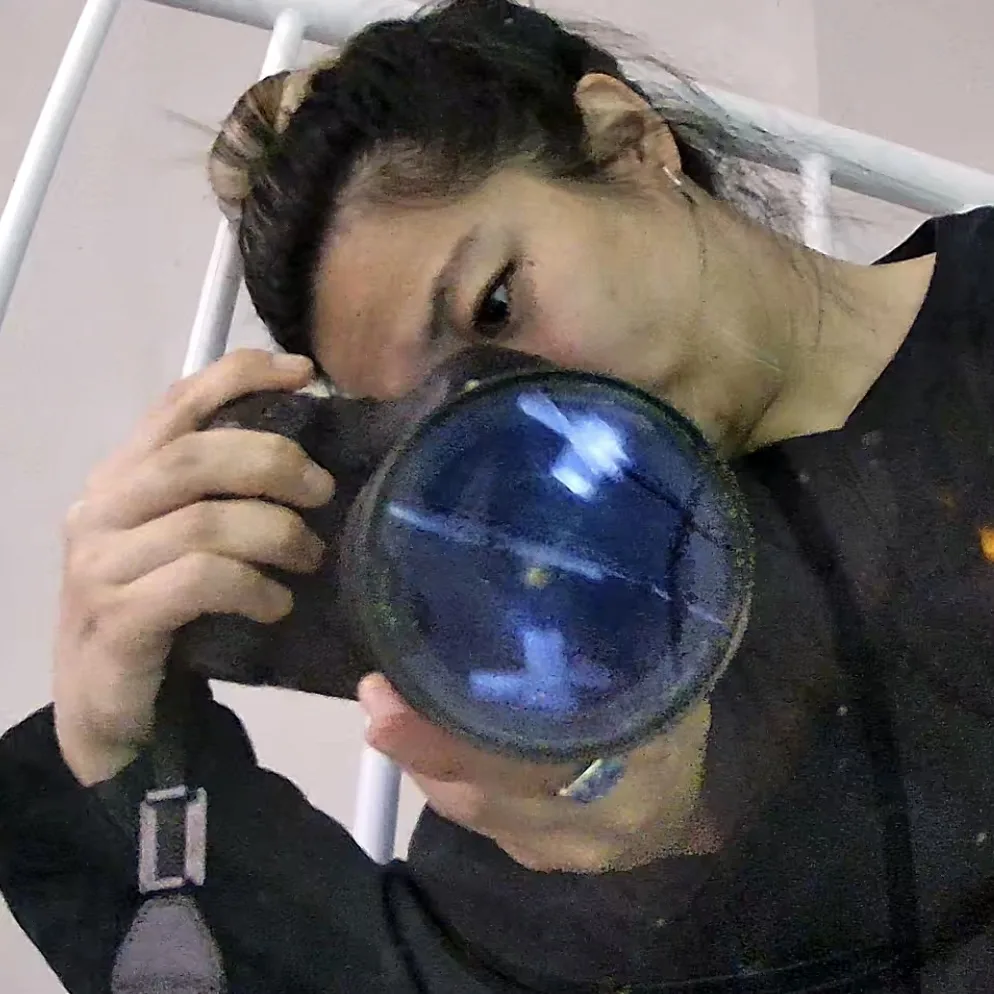
Hua Xi Zi
Hua Xi Zi is a media artist and researcher working and thinking with productions of image-making, performances, and network infrastructures. Having produced various technological support and labor for art and media productions, xi zi concerns about the privilege, power dynamics, and socioeconomic reliance confronting technological development and control. Her work has also been informed by her cross-cultural and transnational lived experiences that is between different tactics of participation, individual and collective memories with unspeakable emotions. xi zi continues to look for ways to “un-expose” while seeking for alternative yet sustaining methods and aesthetics to connect, to be with, and to co-exist across borders, both virtually and locally. Her works have screened at non-fiction and experimental film festivals, installed and shown site-specifically at exhibitions, performed solo and with a collective both on-location and via the internet, and she recently taught a course on media and net art.all just fresh-off-the-boat or floating
In the form of a “hybrid ethnographic documentary,” a screen-recording video will explore the path-routes and screen-time of those who are masked, dressed in costumes, and encrypted with switchable codes in the disguise through private tunnels, lurking, indulging, surveilling, participating, and disengaging with multiple IP or wallet addresses. Different threads of narratives will evolve as we weave through these stories between servers and nodes—we are boarding and riding with Virtual Private Network protocols: we’re all fresh-off-the-boat this time. Meanwhile, this video work will begin with reflecting on its own image-making protocols before delving into the study of virtual private network protocols and those alike, for both attempt at moving virtually in illusion and uncanniness. The video will also be experimented with its audiovisual protocols to evolve and iterate live in real-time with the changing virtual and private networks. By the end of the day, the way this video can be viewed will also be played with a layer of encryption. Perhaps only for those who hold the public key, or else…? | GCC Track

Shirui Zhou
Graduate student at Georgetown University majoring in Data Science for Public Policy | Consultant at the World Bank | Data Scientist Specialize in Visualization An enthusiast of public interest technology, particularly interested in cooperation problems, complex systems, and cybernetics applications in management and political contexts. A human really love sea 🏝 Skateboarding 🛹 Guitar 🎸 and photography 📹Reification Synergy: Gear Transmission Link + Math Rock
Consider Gemma, a parallel system that, despite initial differences, eventually harmonizes with the first due to external pressures, symbolizing the convergence of diverse regulatory frameworks towards a unified standard. This narrative encapsulates the dance of power between major players on the world stage, such as the US and China, their interactions driven by a blend of competition and the inevitable push towards mutual adjustment.
The intricate dance of these concepts can be visualized through a steampunk-inspired gear system. Each community acts as a gear, set into motion by a triggering event. As it reaches a certain operational threshold, it achieves a stable rhythm. Parallel gears, initially moving at disparate speeds, are drawn into alignment, reflecting the broader integration of peripheral entities into a unified pace of progress. This mechanical ballet mirrors the dynamics of polycentric governance, capturing the essence of conflict and cooperation, chaos and order. | GCC Track
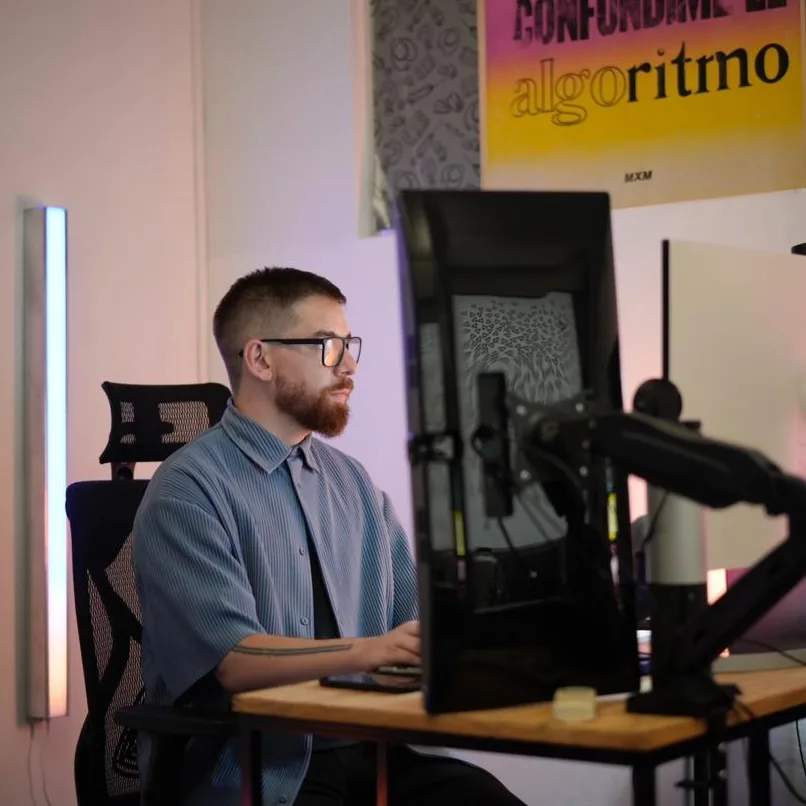
Nicolas Madoery
He is a specialist in designing strategies for music industry projects mediated by new technologies. With over 15 years of diverse experience, he is now focused on the development of communities, tools, and processes aimed at creating a more diverse and equitable music industry. His work includes the development of music projects and their content, sector-specific platforms, and public policy design. He actively explores the impact of emerging technologies such as AI and web3, particularly within the Latin American cultural ecosystem. He coordinates FUTURX, a center for research and peer-to-peer training that intersects music, technology, and internet culture.Meme-Made Protocols: Innovating Community Interactions
This campaign aims to deploy 100 memes across various digital and personal media platforms to study their impact on community engagement and communication. Through the dissemination of memes and organization of workshops, we will investigate their potential to enhance dialogue, foster community cohesion, and create new communication protocols. By harnessing the power of memes, FUTURX seeks to lead in innovation, cultivating a dynamic and engaged learning environment within our research community.
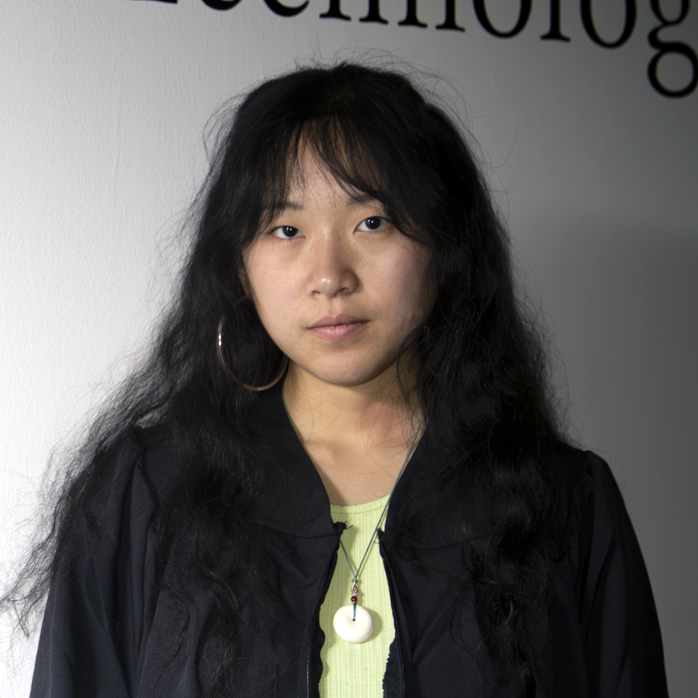
Wendi Yan
Wendi Yan builds research-based worlds through game engine, film and sculptures. She strives to mold mythological companions for coping with contemporary disorientations around technology and history. She holds a B.A. in History of Science from Princeton, and is an inaugural member of the Steve Jobs Archive Fellowship.Feral Labs
Whether it’s synthetic biology experiments or geoengineering climate technologies, laboratories will become feral. This projects uses 3D software and AI to imagine the fusion of the lab and landscape, and feral protocols of science.

Jason Rhys Parry
Jason Rhys Parry is a researcher and writer based in Tokyo.Eternal Forest Protocol
Can a mature forest be reverse engineered? Can its growth be planned from scratch? Accelerated at a hyper-natural rate to a self-sustaining escape velocity? In Japan there are different protocols for growing forests. Some, like the Miyawaki method, aim to produce a simulacrum of a mature forest in a handful of years. In contrast, a 200-year plan underlines the design of the Meiji Jingu forest in Tokyo’s center. Millennia-old shrine forests across the Japanese archipelago serve as reference points for these modern forest-generating protocols, setting the standards for what species count as “native” vegetation. Eternal Forest Protocol is an atlas of these forest-growing algorithms, articulating the instructions for composing some of the most complex superorganisms on earth.
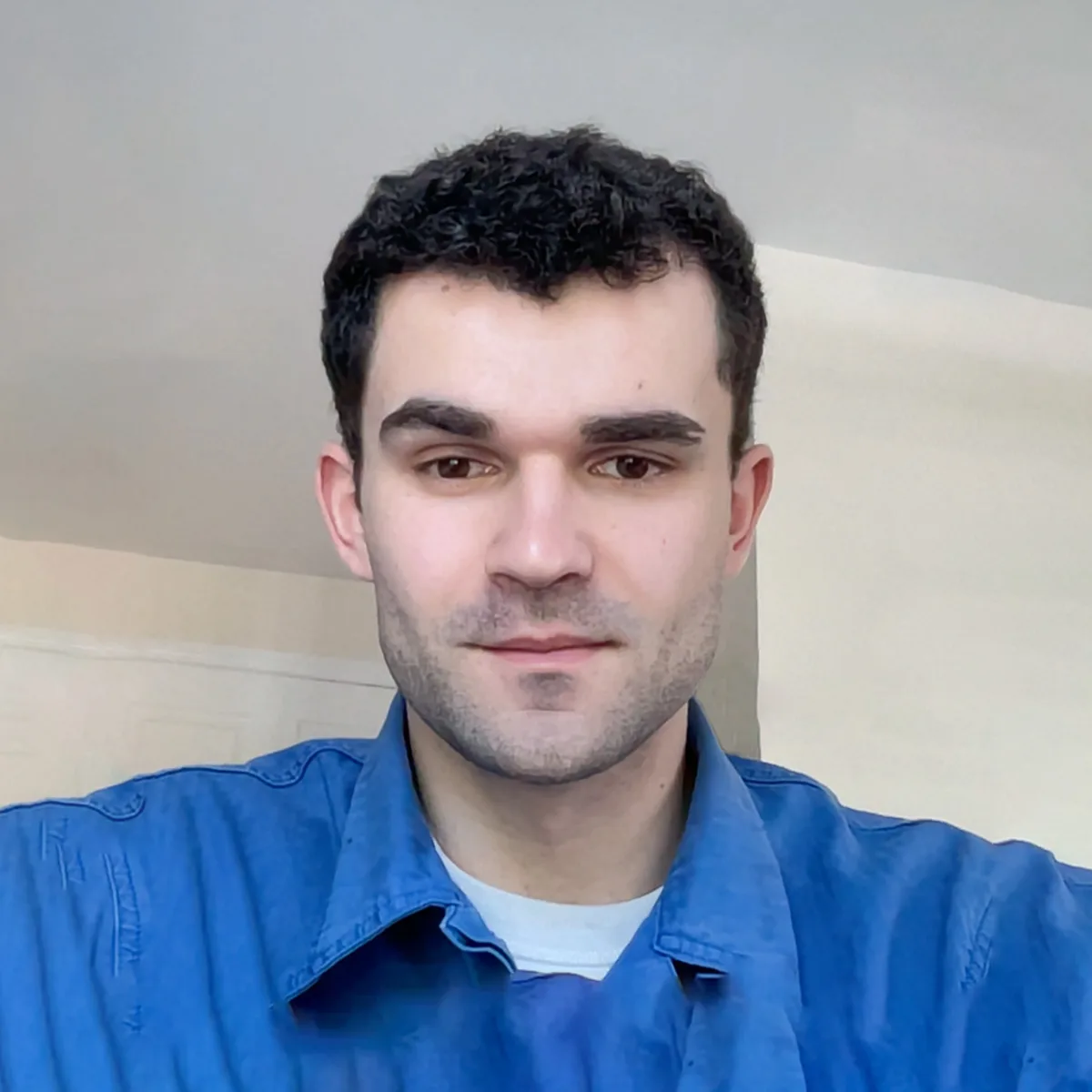
Willie Fineberg
Willie is a designer interested in how interfaces and platforms shape the creation and spread of ideas, information, and culture, and how they could be improved to benefit humanity. He is based in New York.Protocol Canon
A mini-site that presents a curated selection of real-world protocols as a resource to help people build intuitions about what protocols are, how to recognize them, and the consequences of their design.

TankCat
Fan of movies, literature, and some kind of theory.Protocol-Cinema | 协议—影像,或一种基于协议的蒙太奇拼图
A series of cinema based on protocol, both in a general way and technical way, focusing on protocol and poetics, applications(external) and experience(internal), revolving around the internet. | GCC Track
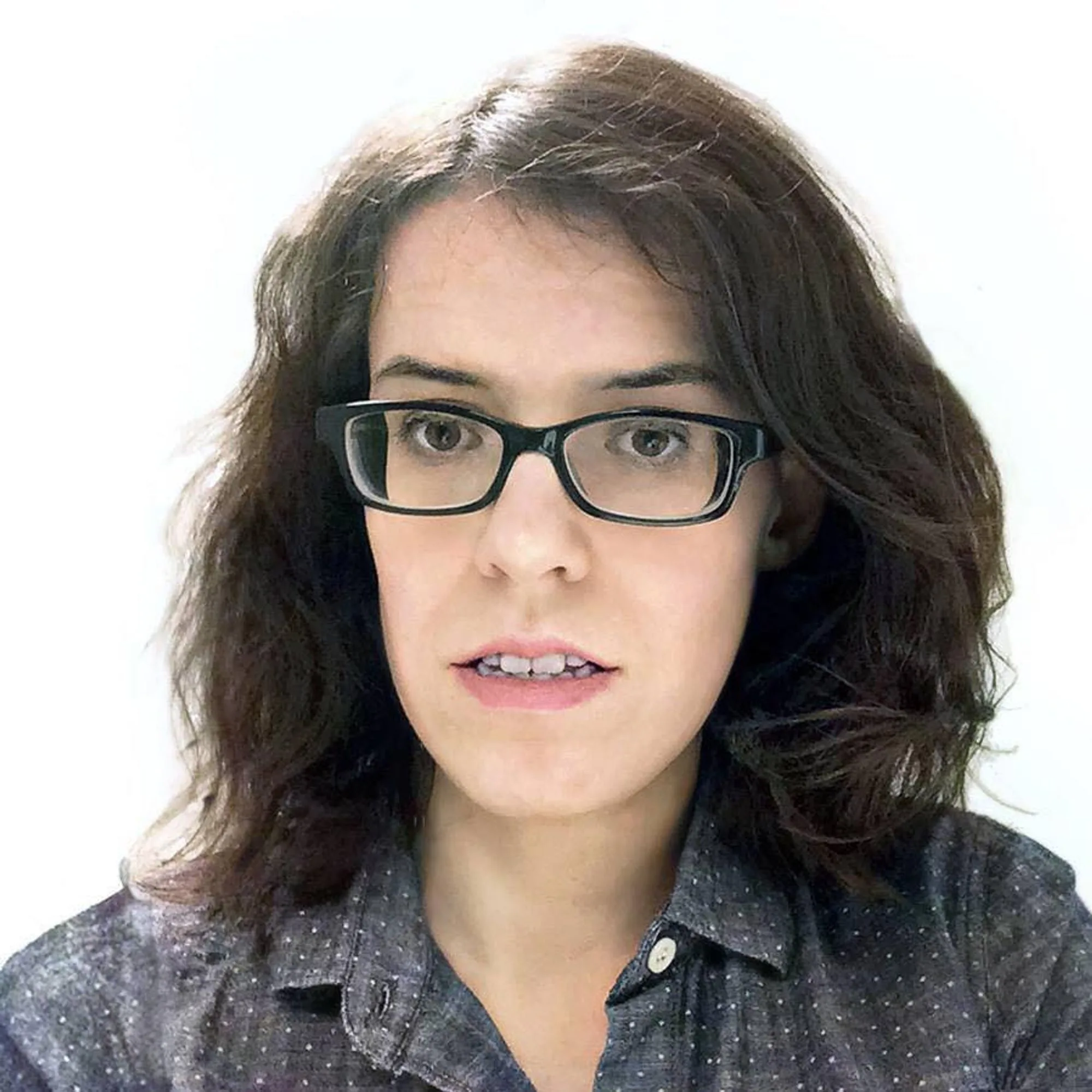
Chenoe Hart
Chenoe Hart is an architectural designer investigating how the internet relates to the built environment. She creates writing and speculative design projects which examine how digital technologies can transform architecture's historical condition of being a passive and location-based form of media.FutureRack
FutureRack exports the 19″ rack format currently used to mount telecom, IT and audio/visual equipment into new settings within residential homes and retail stores, expanding the protocol’s vocabulary of potential configurations.
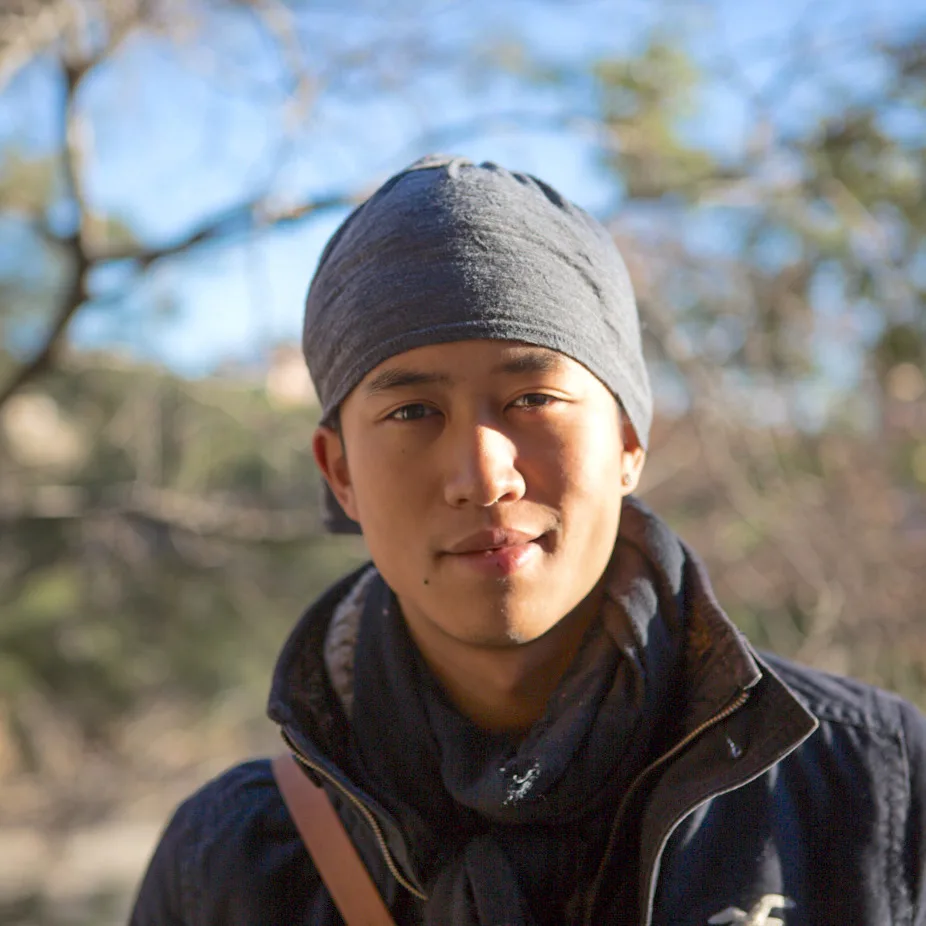
Guo Liu
Guo is the CTO and cofounder of Matters Lab, where he lead the experimentation and building of decentralized digital space.A Pattern Language for Digital Spaces
We increasingly live in digital spaces. Ideal digital spaces build connections and nourish minds, collectively owned and changed by us the inhabitants: a form of space more humane than what we have now.
To collectively explore and summon dreams into reality, we need a common language. A language made of behavior-shaping patterns in the digital space that have proven to work for us, drawn from the short but vast history of the internet.
I will put together a list of patterns, with a similar multi-scale structure as A Pattern Language 7, but using mostly illustrations. The result will be a booklet that serves as the beginning of a pattern language, through which more people can be conscious of how structures in digital spaces shape our minds, and how we can together envision and articulate the digital spaces that truly work for us. | GCC Track

Will Abramson
Identity researcher and requirements engineer interested in how we create and sustain memory and meaning in our digitally augmented age.Memories of Us
A short story that explores the role of a memory gardener/librarian as a steward of the protocols and social norms that constrain and enable the inscription, orientation and experience of memory. The story will focus on memories attached/bound to physical reality, for example locations or physical objects. It will also look at the processes of memory creation and remembrance, with a focus on shared, participatory memories rather than those only held by individuals. I anticipate the framing will focus on an artist collective, who initially developed this idea as an art project but began begin to recognise it as a mechanism to seed culture by reaching inter-subjective understandings about shared pasts.
